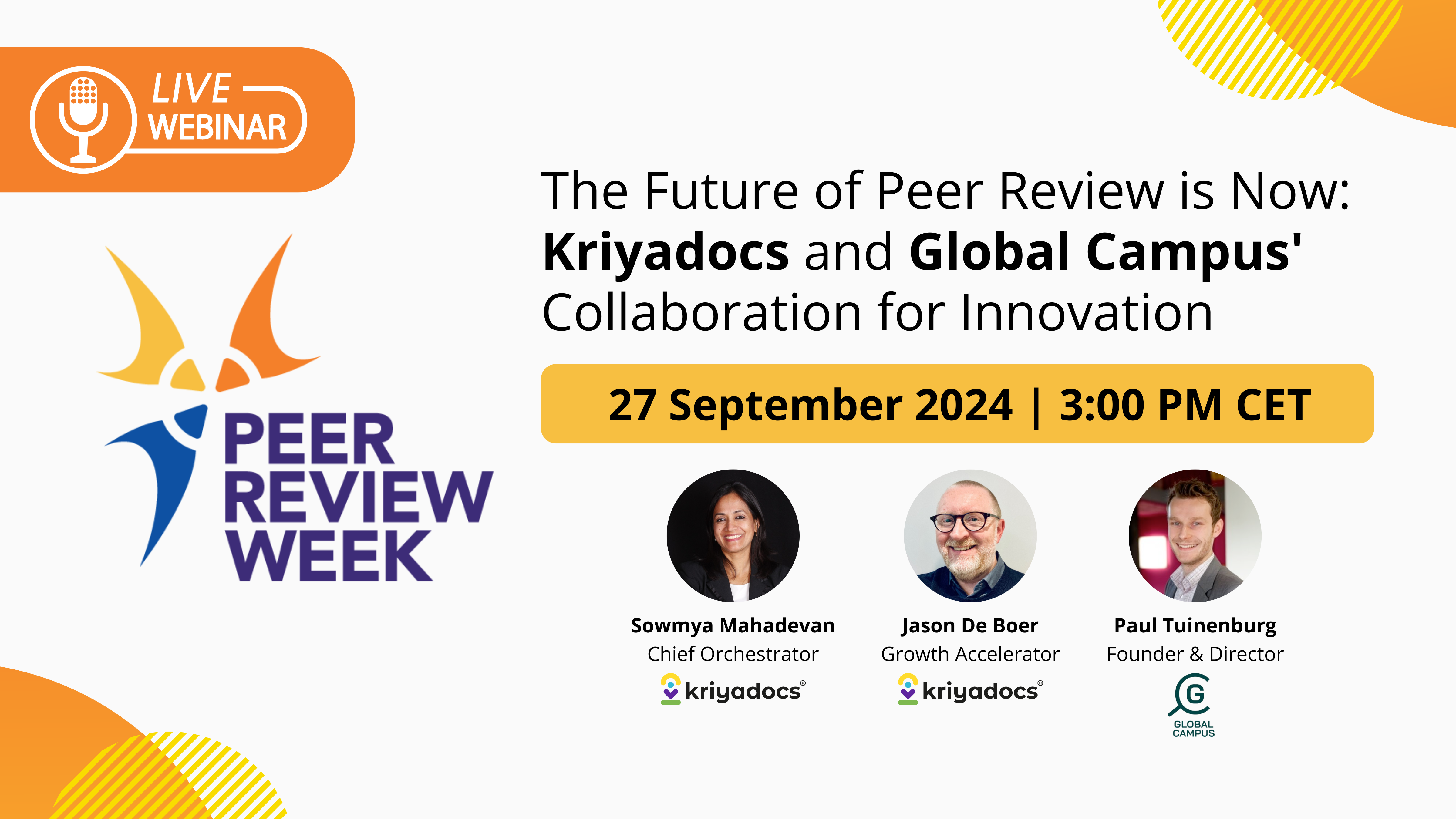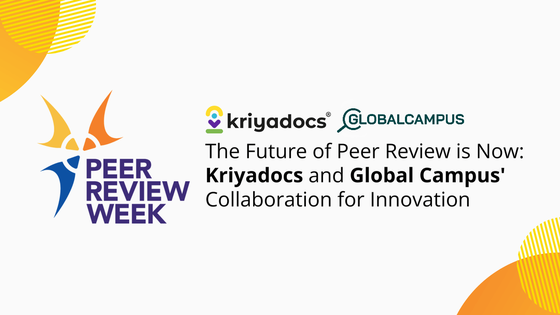The Current Challenge with Peer Review Invitations
Reviewer fatigue poses a threat to the quality and efficiency of peer review. Publons’ Global State of Peer Review 2018 report predicted that reviewer fatigue would continue to rise as scholars become increasingly overwhelmed by the flood of review requests. The report also stated that, in 2019, editors needed to invite an average of 1.9 reviewers to secure one completed review. By 2025, this number is expected to double to 3.6 invitations per review.
Adding to this is the fact that peer review invitations are typically generic, impersonal, and often sent in bulk, resulting in high rejection rates, low engagement, and prolonged review timelines. In fact, a 2018 study found that over 70% of researchers decline review requests because the article is outside of their area of expertise. Other reasons for declining reviews include unavailability and a conflict of interest.
Rising rejections from reviewers is a challenge for everyone involved in peer review. By taking a generic approach to reviewer invitations, publisher teams may end up having to send more and more invitations to get just one successful reviewer acceptance. But this is not sustainable.
This is exactly the challenge Kriyadocs and Global Campus are working on addressing together.
About Kriyadocs and Global Campus: Why This Partnership Matters
With over 20 years of industry experience, Exeter Premedia Services developed the Kriyadocs platform to help publishers navigate the triple constraints of upholding publication quality, controlling costs, and meeting tight turnaround times. Kriyadocs has evolved over the years into an end-to-end ecosystem that supports every stage of the scholarly publishing process, from submission through peer review and post-acceptance workflows to final delivery of content and metadata.
Kriyadocs has empowered scholarly publishers to cut turnaround times by as much as 63%, optimize workflows, and drive significant improvements throughout the scholarly publishing workflow.
Global Campus, launched in December 2022, uses AI to connect manuscripts with relevant academic experts, solving a major issue: finding relevant reviewers. By tapping into OpenAlex’s vast data set, mixed with their own state-of-the art matching algorithms, Global Campus identifies experts from across the globe and makes reviewer invitations more targeted and relevant. This approach increases the likelihood of experts accepting invitations.
Global Campus has helped publishers reduce the rate of reviewers declining invitations due to articles being outside their expertise, dropping from 10% to just 2%.
The collaboration between Kriyadocs and Global Campus integrates best-in-class reviewer-matching capabilities into a contemporary peer review platform, helping publishers enhance efficiency, improve reviewer engagement, and enable high-quality reviews.
Alert: The live webinar on September 27 featuring Kriyadocs and Global Campus will dive deeper into the specifics of how this partnership is set to transform peer review processes. Learn more and register for the webinar here!
Revolutionizing Peer Review Invitations: A Personalized Approach
Leveraging Data for a Personalized Peer Review Experience
Imagine sending peer review requests with a single click, perfectly aligned with the reviewers' expertise, referencing their past reviews, and demonstrating how their feedback could impact the field. This level of personalization is made possible by integrating Kriyadocs' platform with Global Campus' expert network.
Key data points for personalization include the reviewer’s subject matter expertise, review history, and more. This targeted approach boosts engagement and speeds up the process of finding suitable reviewers, reducing turnaround times for publishers.
Access to Global Experts with OpenAlex
Global Campus leverages OpenAlex, an open dataset that connects over 90 million experts with relevant scholarly opportunities. This database is a goldmine for matching the right reviewers with the right papers.
Advantages of leveraging OpenAlex:
- More authors from the Global South included in the data
- More research from Humanities and Social Sciences included
- Data is transparent and open for everyone to check
Because Global Campus matches with the publications, suggestions for peer reviewers are based on their expertise, and not just on seniority or H-index like in many other platforms. This can lead to higher acceptance rates for peer review invitations, as reviewers are more likely to be aligned with the manuscript's topic.
Increasing Diversity with Experts from the Global South
The partnership between Kriyadocs and Global Campus addresses the lack of diversity in peer review by amplifying voices from the Global South. Because Global Campus matches on content, it's capable of identifying the best fitting academics from the OpenAlex data in the Global South as well.
Impact of greater diversity:
- Broader perspectives in research evaluation
- A more inclusive and representative peer review system
This initiative strengthens the integrity of the review process while promoting inclusivity in scholarly publishing.
The Benefits of a Modern Peer Review Platform
Kriyadocs offers a powerful peer review platform designed for flexibility, ease of use, and enhanced collaboration.
Advantages of adopting Kriyadocs:
- Highly configurable workflows with role-based permissions for flexibility and security
- A single comprehensive, end-to-end ecosystem from submission to content delivery
- A modern, intuitive, and adaptable user interface for all stakeholders
- Seamless online peer review, including inline commentary and queries
- Integrations with best-in-class tools, including Global Campus, for enhanced workflows and smooth metadata flow
These capabilities deliver a streamlined, best-in-class experience for all the stakeholders involved in peer review.
The Future of Peer Review is Now
The partnership between Kriyadocs and Global Campus is more than just a technical integration—it’s a collaboration intended to deliver a more efficient, engaging, and inclusive peer review process. By combining cutting-edge technology with a focus on diversity, this collaboration is set to address some of the most pressing challenges in peer review today.
Adopting a more personalized approach to reviewer invitations can dramatically reduce the time it takes to find and confirm suitable reviewers, which in turn speeds up the entire publication process. By ensuring that invitations are sent to those with the right expertise and interest, publishers can expect higher engagement, fewer rejections, and ultimately, more thorough and thoughtful reviews. This approach opens doors for experts from various geographical regions and academic fields to have their voices heard, making the peer review process more equitable, more inclusive, and ultimately more representative of the global research landscape.
Are you ready to learn more? Register for our webinar to dive deeper into how Kriyadocs and Global Campus are transforming peer review for the better.
Join our live webinar! See Kriyadocs and Global Campus in action on September 27, 2024, at 3:00 PM Central Europe Time. Register now!

Discover Global Campus: Explore how Global Campus is transforming expert finding methodologies and supporting universities, publishers, researchers, and funders by leveraging AI: https://globalcampus.ai/
Learn about Kriyadocs: Discover how Kriyadocs is transforming scholarly publishing workflows with its innovative platform, backed by 20 years of industry expertise: https://www.kriyadocs.com/
References
- Petrescu, M., & Krishen, A. S. (2022). The evolving crisis of the peer-review process. Journal of Marketing Analytics, 10(3), 185–186. https://doi.org/10.1057/s41270-022-00176-5
- Willis, M. (2016). Why do peer reviewers decline to review manuscripts? A study of reviewer invitation responses. Learned Publishing, 29(1), 5–7. https://doi.org/10.1002/leap.1006
- Breuning, M., Backstrom, J., Brannon, J., Gross, B. I., & Widmeier, M. (2015). Reviewer Fatigue? Why Scholars Decline to Review their Peers’ Work. PS Political Science & Politics, 48(04), 595–600. https://doi.org/10.1017/s1049096515000827
- Publons. (2018). Global state of peer review 2018. Publons. https://publons.com/static/Publons-Global-State-Of-Peer-Review-2018.pdf

